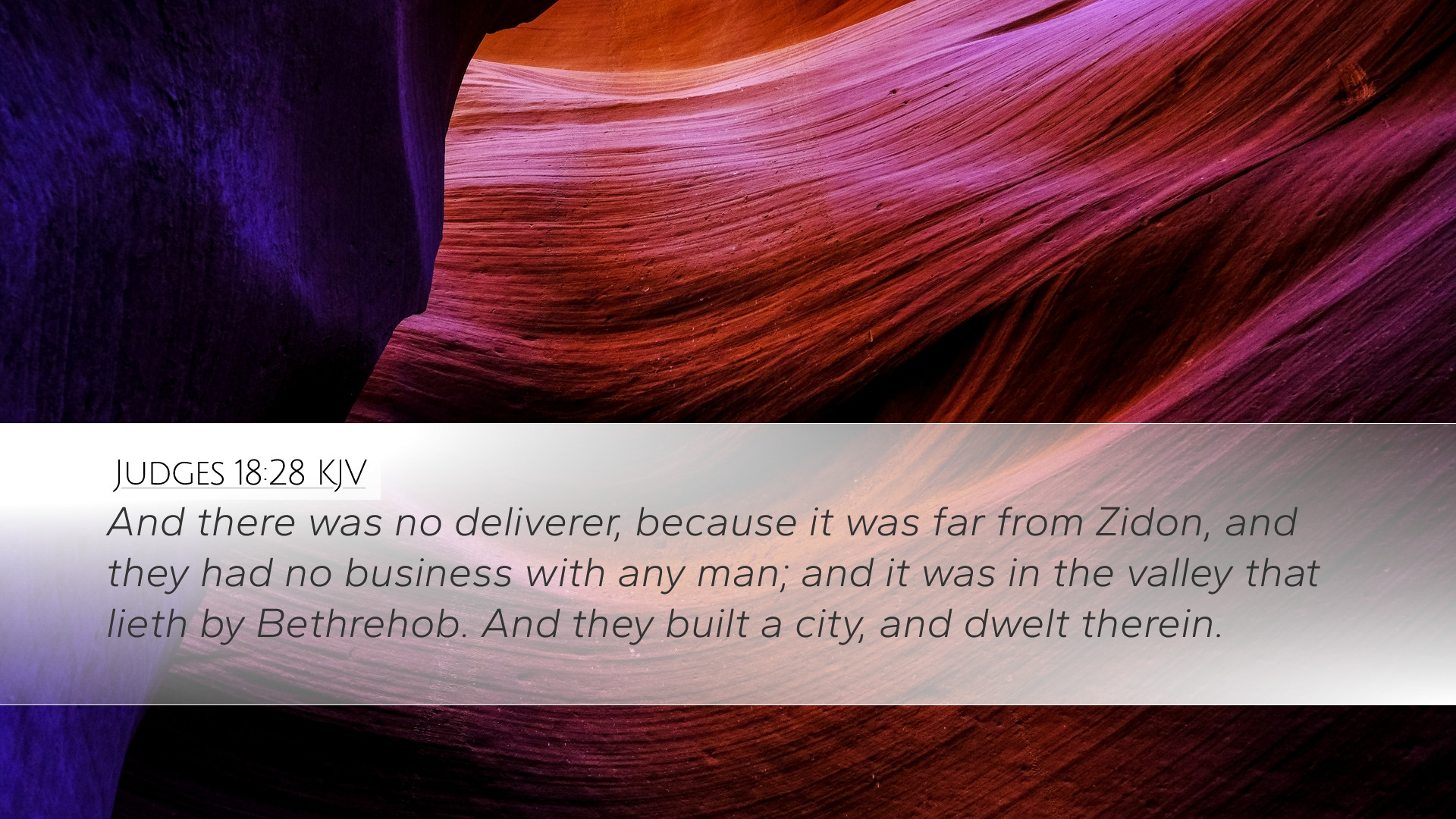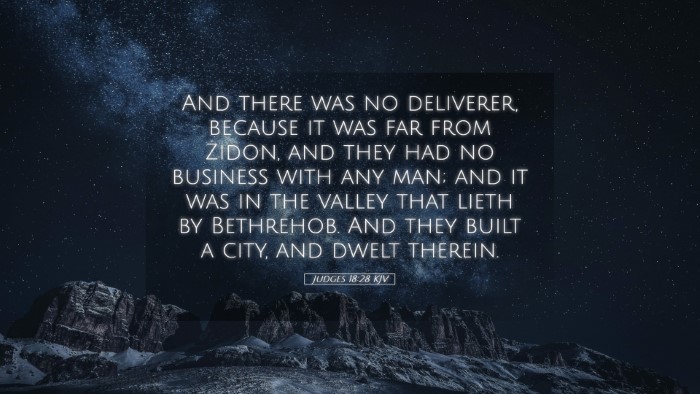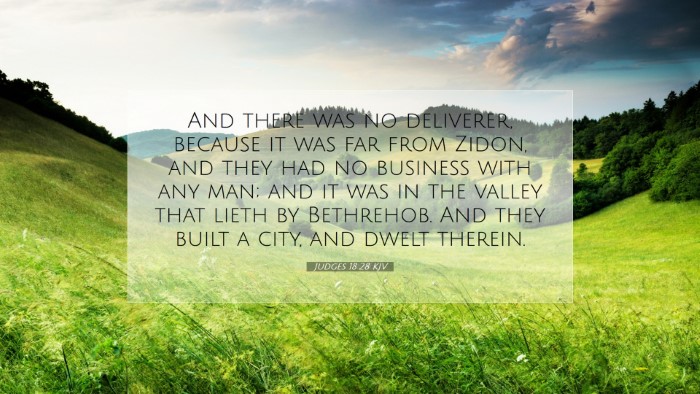Commentary on Judges 18:28
Judges 18:28 states, "And there was no deliverer, because it was far from Sidon, and they had no business with any man; and it was in the valley that lieth by Bethrehob: and they built a city, and dwelt therein." This verse is part of a narrative that reveals much about the socio-religious landscape of Israel during the time of the Judges, and it provides critical insights into themes of idolatry, autonomy, and the consequences of Israel's spiritual condition.
Contextual Background
The Book of Judges portrays a cyclical pattern of sin, oppression, repentance, and deliverance. The tribes of Israel are largely depicted as being in a state of disunity and moral confusion. The events surrounding Judges 18 revolve around the tribe of Dan, who, in their quest for land, encounter Micah and his idolatrous setup.
Dissection of the Verse
In examining Judges 18:28, we can break down its components to uncover deeper meanings:
- "And there was no deliverer": This phrase indicates a significant absence of leadership or divine intervention at this time. The Israelites were in a constant milieu of conflict, often needing deliverance from oppression but facing a lack of strong leaders, which can be interpreted as both a societal failure and a divine judgment.
- "because it was far from Sidon": This geographical reference suggests isolation. Sidon, a Phoenician city, represented both a cultural and military power. The distance from Sidon implies that the tribe of Dan was situated in an area that was not only physically remote but also spiritually disconnected from the cultural influences of their neighbors.
- "they had no business with any man": This phrase can be understood as indicating a lack of alliances or relationships that might have provided support. The isolation of Dan resulted in vulnerability, reflecting a disconnection from the rest of Israel and the surrounding nations, further establishing a sense of self-reliance that led to idolatry.
- "and it was in the valley that lieth by Bethrehob": The geographical setting should also be interpreted symbolically. Valleys in scripture often signify low points, both physically and spiritually. The choice of location may reflect a spiritual low, a place where they felt secure but ultimately turned away from God.
- "and they built a city, and dwelt therein": The act of building a city signifies a form of permanence and establishment, indicating their resolution to live independently from God, embracing the idols that had been crafted by Micah, which was symbolic of their spiritual decline.
Theological Implications
This verse invites readers to reflect on deeper theological implications:
- Isolation from God: The distance from Sidon speaks to a broader spiritual isolation from God. When the people choose their paths away from divine guidance, they inevitably encounter spiritual drought.
- Idolatry in Spiritual Leadership: The building of a city to worship idols demonstrates a failure of spiritual leadership. Micah's introduction of personal idols reflects a society that prioritizes personal preference over covenant faithfulness.
- The Necessity of Community: This passage shows the importance of community interdependence, and how isolation can lead to compromise and moral failings—an essential lesson for modern faith communities.
Insights from Matthew Henry
Matthew Henry comments on this chapter by emphasizing the folly of the tribe of Dan in their pursuit of a territory that was not given to them. He reflects on how their desire for a more convenient and desirable place to live led them to compromise their faith—the very faith that should have connected them to the larger narrative of God's people.
Insights from Albert Barnes
Albert Barnes further elaborates on the concept of "no deliverer," noting the consequences of spiritual decline. He suggests that the Israelites lost touch with God’s providence, leading to a lack of deliverance during a time when they needed it the most.
Insights from Adam Clarke
Adam Clarke provides a rich commentary on the significance of distance from Sidon, indicating that while the tribe of Dan may have sought autonomy and security in their endeavor, they instead forfeited divine protection, leading to spiritual and physical demise. He challenges readers to consider the implications of self-sufficiency absent divine guidance.
Conclusion
Judges 18:28 encapsulates profound lessons on the nature of idolatry, the necessity of community, and the dangers associated with isolation. As modern readers and leaders in faith communities, the text urges us to evaluate our dependencies and the foundations upon which we build our lives. With insights from historical commentators, the text challenges us to remain firmly rooted in God’s provision and community, resisting the allure of self-sufficiency that leads us away from true worship.


